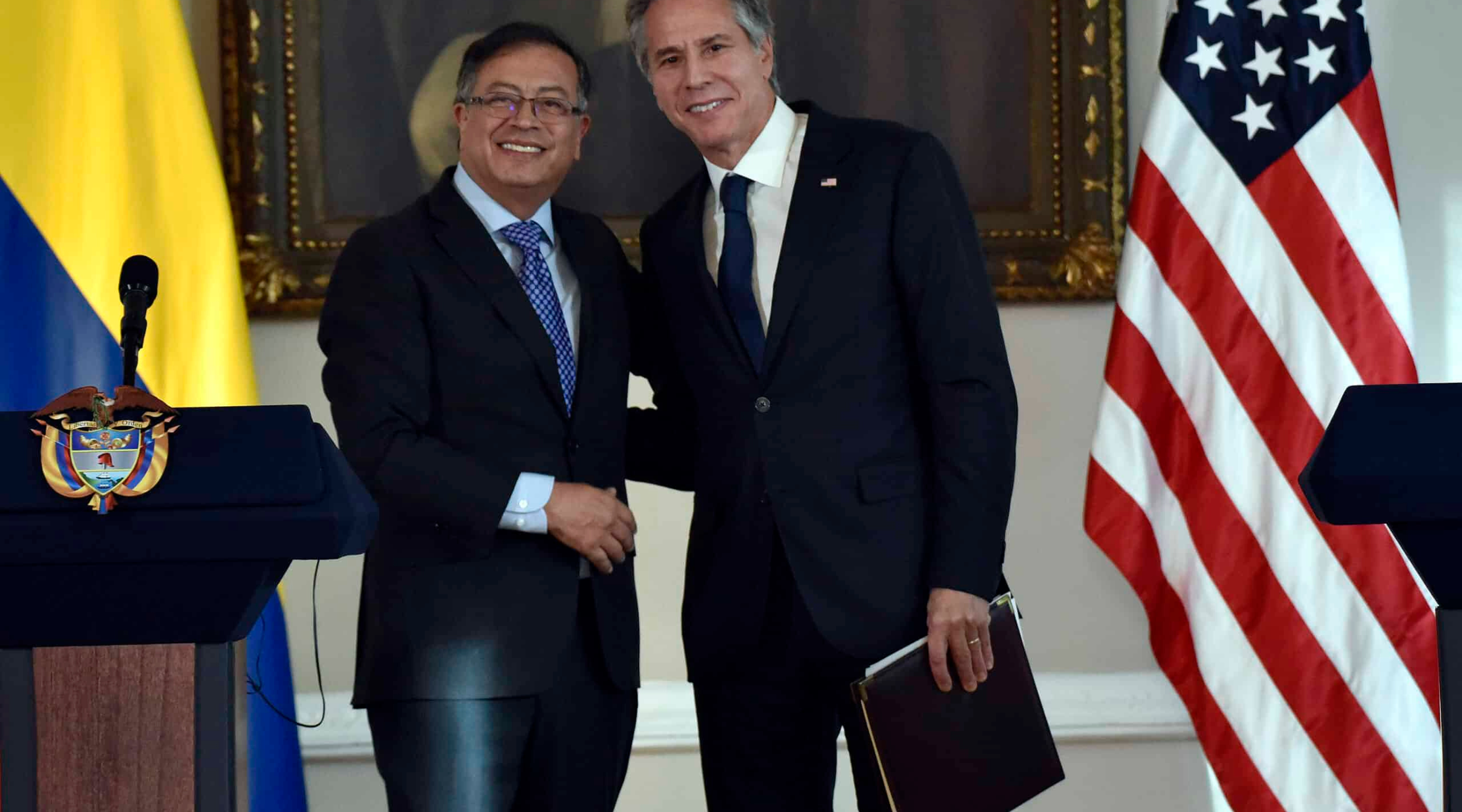Colombia (Washington Insider Magazine)— On Wednesday, US Secretary of State Antony Blinken refused to comment on the constituent process that Colombian President Gustavo Petro seeks to initiate. Blinken stated that he does not have expertise in the Colombian Constitution. His remarks were made during a US Congressional hearing where he was questioned by Republican Representative María Elvira Salazar.
Congressional Inquiry and Blinken’s Response
During the congressional session, Representative Salazar pressed Blinken for an official statement on Washington’s view of President Petro, who has expressed interest in amending Colombia’s 1991 Constitution. Blinken responded, “I am not an expert on the Colombian Constitution,” following Salazar’s suggestion that Petro might attempt to modify the Constitution without congressional approval.
Salazar’s Concerns and Blinken’s Stand
Salazar argued that Petro posed a threat by potentially changing the Constitution without the Colombian Congress’s consColombianent. She also referenced Petro’s recent diplomatic break with Israel, questioning how such actions might influence President Biden’s perception of Petro. Blinken reiterated his limited knowledge of the Constitution and suggested that any unilateral constitutional changes by Petro would likely be contested by the White House. He avoided discussing hypothetical scenarios in detail.
US-Colombia Relations’ Implications
According to Infobae, President Petro’s interest to modify the 1991 Constitution has aroused intense debate in Colombia and among international observers. The 1991 Constitution outlines Colombia’s political framework and citizens’ rights. Attempts to change it via unusual methods have prompted concerns about the country’s democratic stability.
Diplomatic Dynamics
The US and Colombia share a robust history of collaboration, particularly in combating drug trafficking and promoting democratic values. However, Petro’s recent actions and proposals have unsettled some American political factions, especially concerning constitutional amendments and his foreign policy decisions, such as the termination of diplomatic relations with Israel.
Internal Affairs and International Relations
The exchange in Congress underscores the intricate balance between respecting national sovereignty and addressing potential threats to democratic principles. Blinken’s comments reflect the complexity of navigating foreign policy while dealing with internal political developments in allied nations.
Petro’s Constituent Proposal
President Gustavo Petro has suggested a Constituent Assembly to make significant revisions to Colombia’s constitution. He claims that such a policy is necessary to solve long-standing concerns such as inequality, corruption, and insufficient political representation. The proposed reforms include improvements to the judicial, electoral, and economic systems to promote better social justice.
Debate in Colombia
Petro’s proposal has ignited an intense debate. Supporters see it as a chance to update the legal framework to meet contemporary societal needs, while critics fear it could lead to power abuses and political instability. Colombian law requires several steps to convene a constituent assembly, including congressional approval and a popular referendum.
Conclusion
The discussions around President Petro’s constitutional ambitions and the response from US officials highlight the delicate interplay of domestic governance issues and international diplomatic relations. How these developments unfold will have significant implications for Colombia’s political landscape and its relationship with the United States.


























